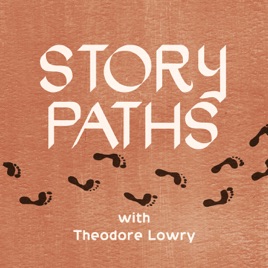
Advertise on podcast: Story Paths
Rating
5 from
Country
This podcast has
90 episodes
Language
Publisher
Explicit
No
Date created
2021/05/13
Average duration
33 min.
Release period
4 days
Description
Learning the language of story storypaths.substack.com
Podcast episodes
Check latest episodes from Story Paths podcast
Believe It or Not: The Power of Fictional Faiths. Part 1
2024/02/20
Sign up for weekly story playshops here: https://storypaths.substack.com/p/42ce63d7-a0b4-4231-88ac-0fe8861e55e3
I had a dream last night, in which my sister and I were guests in the house of a Shanghai family: card-carrying supporters of the Communist Party. I felt a gulf between us, that we could not speak across, because our brief conversations always stayed within a particular scaffolding of thought. Our hosts moved only within these thought structures, these bridges crossing troubled waters that they wished never to swim in.
In the dream, my sister and I had been rescued from a downed craft somewhere in the north of China. Our rescuers had brought to this clean and pleasant home, to wait for our two governments to work out our journey back to Canada. We were ragged strangers in this house, and though our thoughts could easily question the Communist Party and just about anything else, we lacked what our hosts had: belonging.
At first, I wondered why our hosts wouldn't dive off their bridges into the turbulent, wondrous waters of life. Then I came to understand that these bridges gave them what they needed. Not on the deepest level, perhaps, but could I say I had met those deep needs?
We had freedom of thought, my sister and I, but we would remain outsiders even when we returned home, for ours was a nation of outsiders, of individuals unwilling to fit into a universal social system. Instead of families, we had spread-out units. Instead of dependable helpers and dependable roles, we had individuals struggling to work out their roles.
At least our hosts, in some sense, belonged. At least, if they stayed on those bridges, they would receive the basic support they needed.
I feel the interesting question here is not, ‘Is this or that belief true?’ but rather, ‘Why do people believe what they do?’
Belonging, perhaps. A sense of safety, a kinship with the world. The assurance of a good afterlife.
What will they lose if they lose that belief? And what might they stand to gain if they let go of that belief?
Now, personally, I reckon that reality doesn't depend on our beliefs. If trees are sentient beings, they don't depend on my belief to become so. If gods are real, they don't need me to believe them into reality.
But here's another way to look at belief. If a fir tree is a sentient being, in fact, then my belief that it is so may open the channel between us, so that I can perceive the fir tree in a deeper way. If I believe this fir tree is just wood, that channel may shut.
The same goes for myself and other humans. If I hold the belief that this man across from me came to his decisions for good reasons, I'm open to hearing him. Those reasons may be mentally rational, or they could be more deeply rational: from within his emotions and psyche. Either way, my belief in the worth of his reasons keeps the channel between us open.
And so this brings us to another way to look at beliefs: as a web of openings and closings surrounding us. The openings allow parts of reality in, and the closings keep parts out. By adjusting these beliefs, our experience of reality changes.
By adjusting our beliefs, our experience of reality changes.
Many character arcs track changes in this web of belief. A character may be hold racist views, with no channel open for the humanity of certain other humans. But by rubbing shoulders with such humans, a part of our character's web that was closed now opens, letting in sunlight bounced off this other human.
Or, as the story progresses, an opening may close. This might be a tragedy, as events transpire to turn friends against each other as old prejudices cinch in to obscure their vision.
Yet a closing need not be a tragedy; a closing could be a character's protector. Picture a mother and her child. The child was born a girl, but isn't so sure that's who she is inside. The mother is intent on fitting her child into the same gender role that she was put into, so much so that she becomes abusive to her chil
more
Dying into a Living World: Animism and Deathcare, with Sarah Kerr, PHD
2024/02/13
Sign up for weekly story playshops here: https://storypaths.substack.com/p/45d29452-ac79-4c0d-8d77-6991f90fbb8a
Cosmology is a story of how all this came to be, which leads into what is real, or, in the words of our guest today, ‘what is allowed to be real.’
The world-view of a person and culture determines how they live in this world, and also the manner in which they die.
Sarah Kerr sees the world as full of living beings, human and other than human, in physical bodies and in other states. She helps those who are dying, and those who care for them, through this great transition, with the help of carefully crafted ceremonies.
Today we speak about the world-view that informs her work, a view which describes death as not a blank ending, but a crossing over. Those who stay behind can help this crossing through their love and grief, which can be channeled through ceremony.
Sarah says,
“As a sacred deathcare practitioner and a teacher, I’m passionate about helping my clients and students find the healing gifts that can accompany death and loss.
I’ve been in practice since 2012, and I love helping people meet death and loss in soul-based way. I have a PhD in Transformative Learning, with a focus on contemporary ritual healing. I’ve been a student of cross-cultural energy healing for almost three decades and have studied with many Indigenous and western teachers.
I’ve made my own journeys through death and loss, into healing and resolution.
I offer myself in service to both the seen and the unseen world, and I work for healing on both sides of the veil.”
Here’s a talk Sarah Kerr gave about animistic and western world-views, in two parts:
A related conversation with artist Laura Burns
https://open.substack.com/pub/storypaths/p/river-songs?r=1ium1j&utm_campaign=post&utm_medium=web
Episode credits:
I just want to grieve song, sung by Hanna Elise
I hear the voices of the grandmothers, author unknown, found at http://www.prcupcc.org
A video about the great turning, part of the work reconnects with Joanna Macy
https://workthatreconnects.org/resources/the-three-aspects-of-the-great-turning-wtr-training-video-series/
This is a public episode. If you’d like to discuss this with other subscribers or get access to bonus episodes, visit storypaths.substack.com/subscribe
more
A Narrative Kaleidoscope
2024/02/06
For weekly story playshops go on here: https://storypaths.substack.com/p/9bdd1000-4d0d-4c15-ba88-a5ae692cea40
I'm writing this and reading this while I'm sitting by the ocean, and it feels a funny thing to talk about history here because it is, of course, such a human idea.
Personal history is the story of my past, of my life. It could be the history of my ancestors, their journeys that led to me being here today. It could be the history of women obtaining the right to vote.
So already we see that the kind of story we get from the past depends on which part of the past we are inquiring into, and also who is doing the inquiring.
I've heard it said, and it's true, that this word history can also be read as his-story. And I've heard it said, and it's true, that the past-telling that we hear these in schools and popular media is a male-dominated view of the past, focused in particular on generals and politicians, the focal points of certain kinds of power.
This is one view of history. Not one I mean to discount, but let’s inquire into other views, for the stories we tell define us, and we define the stories we tell, so it's important to choose those stories carefully, and to have a wide sampling of stories, a rich microbiome of the past to inform our understandings of the present.
Let's look at the etymology of this word, history. The Greek word historia originally meant inquiry: the act of seeking knowledge, as well as the knowledge that results from inquiry. So you can see that this word originally wasn't about linking events together into a story of what happened, a story of the past, but was simply about seeking knowledge.
History is inquiry.
We might also use this word history as a verb: to history. The story that emerges depends on the seeker, their manner of approach, as well as that which they are approaching. The past is a vast place, and many stories can be found within its landscapes.
We know this from our own lives. Have you ever had a huge shift of perspective? Perhaps there was a moment when you came to see your mother or your father in a new light, a light that re-explained so many things that they had done and said. Have you ever re-looked at a pile of mistakes you made, not as indications of you being a bad person, but as indications that you were crying out for something you needed, or in the midst of learning something that you've now learned? Our view of the past can be a very flexible thing.
So when you're thinking about writing some history—for your character, for yourself, or for a culture—a good starting point is to ask yourself… what your starting point is. From whose perspective are you inquiring?
I'm sitting here by the ocean and thinking, what might history look like from the perspective of the ocean? A history of new creatures coming in and swimming around her waters. A history of changing temperatures, changing chemistry, of cooling and warming, of cooling and warming again. Of large parts of her becoming ice, then thawing, then freezing again.
Going back further, a history of that water shooting through outer space from a star. And somewhere near the end of this history, coming toward the present moment, we humans emerge as characters stepping from her waters onto the land, with our women carrying a little of that salt water sanctuary within their wombs.
From the ocean's perspective, we humans are not central, and I find it refreshing to consider a history in which we humans are not central.
It might also be interesting to look through the eyes of a creature who has lived through these great changes, like species of sharks who have continued for millions of years. And rather than look through the eyes of a single individual, to look through the eyes of the species as a whole, taken as a single being, moving through time. How might this being experience these coolings and warmings, as their habitat shifts, and they encounter other species for the first time?
How might a cold weather bird wh
more
Playful Blueprints: Designing Personal and Professional Sandboxes
2024/01/30
Learn more about Tamara Strijack’s offerings here.
SIgn up for weekly playshops here: https://storypaths.substack.com/p/acc68ea7-3583-4165-b74a-096dff09b74b
This is the latest conversation in our Play Matters series.
I've spoken with a board game designer about the theory of game design, and by extension, play-space design.
I've spoken with a man who goes into prisons, who brings creative exercises into those difficult, stifled places, helping people unlock their hearts.
I've spoken with a woman who brings play into ceremony and alternative education.
I've spoken with an indigenous woman who brings play into her work of decolonization, cultural renewal, and intercultural bridge building.
And now, I'm happy to bring you a conversation with my good friend Tamara Strijack, who works in education and child and adolescent support.
She is a counselor and educator working on Vancouver Island, near where I'm living now, and she specializes in childhood and adolescent development. In the last 25 years, she's worked as a mentor, counselor, youth leader, program director, and group facilitator. And she's now mainly a parent consultant. She also offers workshops and teaches university courses for teachers and counselors in training.
She's a mother of two and the daughter of Gordon Neufeld, and she works in the Neufeld Institute.
In this conversation, we get into why play is so vital for human well-being. How it is such a mistake to consider it something that children do just to pass their time. It's an integral part of what we need to be healthy and grow at every stage in our lives, not just childhood. And it can be a space to practice what we might then do within the greater field of our life.
Play is vital for these reasons and more.
We also speak about how to craft zones of play for children and adults, although for adults, we might not call them play zones, we might call them something more official sounding. These can be physical spaces, but perhaps more importantly, they are emotional spaces.
As you listen to this, I invite you to consider where in your life you have place spaces and where you might want to create or enhance play spaces.
This is a public episode. If you’d like to discuss this with other subscribers or get access to bonus episodes, visit storypaths.substack.com/subscribe
more
Rivers of Ancestors
2024/01/23
(Art by Jessie White, Seeds of Spells)
Sign up for story workshops here: https://storypaths.substack.com/p/b3e7ccb6-d735-4187-a4b6-221f1a6a0882
I've recently returned from an ancestry workshop, which was deeply moving. Combined with other ancestry work, and discussions about ancestry that have gone on in my life lately, this is opening up a channel for a deeper history of myself, a deeper sense of self.
Perhaps you’re on your own journey into ancestry.
I am of the many beings who have walked before me. They are part of me, with myself as an individual self being the tip of the finger of a body, a great body of ancestors.
For me, raised in an individualistic culture, this is quite a paradigm shift.
For most people, for most of our time here as humans, it’s more usual.
By the way, the lady putting on this ancestry workshop is named Pulxaneeks. She's a First Nations lady from the Xanuksiala First Nation, here in the Salish Sea.
You can find out about her work here.
I recommend her workshops, in-person and online.
Now, I'm going to dive into ancestry as a way of understanding a character.
This character might be yourself, or someone you know. It could be someone in a story you're writing. It could be a fictionalized version of yourself, or someone you know.
When I think of Ancestry, I think of many rivers flowing into one, many creeks coming together into one.
And what is that one river into whom they flow? That is the one who is living now, who is acting on the stage of this world. And these many streams collecting in the watershed, of course, are the different lines of genealogy that have coalesced over decades, centuries, and millennia, into that one who is walking the earth today.
Into us.
And each one of us is such a river, flowing into the future.
In this workshop, Pulxaneeks’ partner Scott led us in a practice that I'd like to share with you.
Here’s the practice.
Touch your fingers to your neck so you can feel your pulse.
Feel that drumming, feel that rhythm.
You might even tap that rhythm on another part of your body, on your chest or leg or somewhere else, feeling that rhythm, and knowing that this pulse has been pulsing since you were born, all the way back to the start of your life.
Pulsing, pulsing, pulsing, since you were born, and yes, before you were born. That pulse was shared with you from your mother's pulse; it was activated by your father's pulse.
That pulsing went on in the body of your mother, of your father, throughout their whole lives, and back to when they were in the wombs of their mothers…
and their mothers…
and fathers….
pulsing back,
back, back,
back.
This pulse goes back thousands and thousands and thousands of generations, into the time before there were humans, such as we know ourselves now.
Now, when you're considering the ancestry of a character—that is to say, the stories that flow into the story of that character's life—you may want to pick one or two streams, because it branches out pretty quick.
Each of us has two parents, and together they have four parents. Altogether they have 8, then 16, 32, and it gets complex pretty quick.
Many of us have ancestry from different parts of the world, so depending on which part of that branch we follow, we end up in very different parts of the world.
Just choose one stream for now, and you can always go with a different choice next time. And as you’re thinking of this strand going back in time, I invite you to consider the land in which they roamed, in which they worked and loved and sang.
Was there deep winter? If so, did it draw people inward, perhaps to make intricate art that took much time to create, and to tell intricate stories? Was there a harvest time, a drying time, a preserving time? Or was the land of these ancestors a warmer land, that made for easier travel, and different harvests coming at different times throughout the year?
All this you might feel from this drumming pulse and feel this in your own blood and bones as
more
When Termites Take Over the Garden
2024/01/22
Which real-life story does this remind you of? Comments here (paid subscribers): https://storypaths.substack.com/p/67d05587-82ae-4533-bb51-fd1c1041e9c6
Termites of the garden. The first dawn in the garden was simple but intense. Intensely hot. And next came the torrential rain. Massive plants sprouted up, followed by great beasts lurching about the land.
Gradually, many kinds and sizes of creatures came to make their home there, and they endured through hot and cold spells, and then for a time, all was more or less peaceful.
In the second dawn, moments before sunrise, an odd sort of termite appeared. They burrowed beneath the soil, taking nutrients right from the grasp of hungry roots. They dug deep into clay, with which they constructed mound after mound after mound, tunnel after tunnel.
A fraction of an instant before sunrise of that second dawn, if you looked out over that garden, you could be forgiven for saying it wasn't a garden at all, but a city of termites.
Which real-life story does this remind you of? Share in the comments, and if you’d like, I might share you story in a future newsletter.
This is a public episode. If you’d like to discuss this with other subscribers or get access to bonus episodes, visit storypaths.substack.com/subscribe
more
Play is a Sign of Life, with Pulxaneeks
2024/01/19
Pulxaneeks website, including upcoming events.
I’m glad and grateful to be presenting the following guest. Her vocation is as an Indigenous relations consultant, which is to say she helps settler folks like myself learn to be in good relations with the original peoples of this land.
This involves far more than introducing people and smoothing communications. For folks like myself to be in good relations with indigenous people, there’s groundwork to be laid: a reckoning with history, both recent - in the colonisation of these lands - and ancient: the colonisation of the colonisers’ ancestors and land. There’s ancestral work to be done, and a reckoning with the fact that hurt people hurt people, and a seeking of the origins of that hurt.
Serious work, this healing work. So serious that you can’t do it without some play.
Who is this guest?
Allow me to introduce Pulxaneeks, from the Eagle clan of the Xanuxlia Haisla First Nation.
I’ll give a wee introduction, then say a little about different kinds of introductions.
To say she’s an ‘indigenous relations consultant’, is true, yet far too brief an introduction. It’s convenient to say on an elevator full of busy people, but too short to say to people who are not busy, and want to know more deeply about those they’re introduced to.
Listen on for her introduction, full of the rivers of ancestors flowing into her, both ancient and recent. Full of land and heart.
You might learn something about your own deep rivers of ancestry.
Other interviews with Pulxaneeks
To subscribe to this podcast and newsletter, go here.
This subscription includes weekly story play workshops.
This is a public episode. If you’d like to discuss this with other subscribers or get access to bonus episodes, visit storypaths.substack.com/subscribe
more
Caterpillar Chronicle: Lessons from Butterfly Migrations
2024/01/16
Sign up for story workshops like this on Substack for just $5/month. Workshops are one hour weekly on Thursdays at 10-11 PST.
https://storypaths.substack.com/p/7233d334-6564-4d50-bf60-2a022a34140c
This episode captures the essence of our first story workshop, a weekly gathering exclusively available to our premium subscribers for just $5 per month. Joined by my friend Loke Keihanaikukauakahihuliheekahaunaele-Keanaaina, we explore the lessons from migrating monarch butterflies. Together, we discuss the impacts of trauma across generations, how individuals navigate healing collectively, and the importance of embracing one's identity within a community.
Loke’s late husband is a native Hawaiian man, and she is creating a book of stories he wrote and spoke. You can find more about this project here.
Also here’s a great interview with Loke. It’s Episode 6:
Do join us for these weekly workshops, where we delve into the profound wisdom hidden within stories.
If you’re not already on Substack, you can sign up at the link below and become a premium subscriber for $5/month.
Happy creating.
This is a public episode. If you’d like to discuss this with other subscribers or get access to bonus episodes, visit storypaths.substack.com/subscribe
more
Monster at the Headwaters
2024/01/15
Write your guess on Substack here: https://storypaths.substack.com/p/36b06c3f-ca37-4095-aa09-810f2e61f58d
Can you guess which real-life story this is?
A river once flowed freely, a source of abundant fish for the people, until a monstrous presence established its lair at the headwaters.
This creature voraciously consumed the fish and discharged bolts of lightning that struck distant places. The people, deeply connected to the river and its inhabitants, waged a prolonged battle against this monstrous force. They even formed alliances with former adversaries.
After a protracted struggle, they succeeded in breaking the monster's dominion. As it perished, its body disintegrated. The waters, once constrained, flowed freely again, and over time, the fish gradually returned.
Which real-life story this might this be? Leave your thoughts in the comments.
This is a public episode. If you’d like to discuss this with other subscribers or get access to bonus episodes, visit storypaths.substack.com/subscribe
more
Storyteller's Diary: An Old Friend. Part 3, Integration
2024/01/10
Here's the associated article, with pictures. You can add your comments here: https://storypaths.substack.com/p/9e7267ab-518f-4599-beff-0530e80208f6
Welcome to the Story Paths newsletter and podcast. This is a Storyteller’s diary edition.
As I tell the tale of this one life, may it help you to tell your tales.
If you missed the first parts, I spoke about why I abandoned my town and family twenty years ago, falling into a descent after my father's death.
My journey paused as I took a spiritual path, lacking resources and support for the dive into adulthood. I found myself alone in a new place, a leaky trailer in a Pacific Northwest winter. As I tread water in the sea of grief, writings and new friends were able to offer just enough support.
Prompts
(Take one, none, many or all. I suggest you write a response, or speak it aloud, or discuss them with a friend, or just think about them)
-Imagine a scenario where you reconnect with someone from your past after many years. Write a reflective piece exploring the conversations, feelings, and lessons that unfold during this reunion. Dive into the emotions, the changes in both of you, and the wisdom shared or gained from this unexpected encounter.
-Craft a story about a character who is thrown into a difficult personal journey but unexpectedly halts their descent due to unforeseen circumstances. How does this pause affect their life, relationships, and understanding of themselves? Explore their internal conflicts and eventual return to their journey with newfound wisdom.
-Craft a story about an entrepreneur who begins a project that will not be complete for many years. Illustrate the journey of revival, highlighting how this gap may have been necessary.
I'd love it if you share your thoughts in the comments.
Until next time,
Theo
This is a public episode. If you’d like to discuss this with other subscribers or get access to bonus episodes, visit storypaths.substack.com/subscribe
more
In the Meantime
2024/01/09
Become a paid subscriber for $5 and get access to 4 workshops per month!
https://storypaths.substack.com/
Welcome.
This writing comes to you from the shore of the ocean in the Salish Sea. There's a woodpecker who's going at it on a Gary Oak just nearby, seeking some bugs. There are seagulls landing and strutting about on a rock outcropping, and I see a human walking back from that rock outcropping jutting into the ocean.
I reckon that human’s in a contemplative mood. I am. The sun will soon set on this short day, as we slowly arc up from solstice.
I'm reflecting on the journey of this newsletter and podcast. We’ve explored the journeys of different creatures and outer space phenomena, and considered parallels in our own journeys. I hope that's been as helpful and fun for you as it has been for me. Putting the music together was especially interesting, a timeless zone of kairos in which many chronos minutes ticked past.
I'm pausing for a breath in this dark time of year, when the world is asking me to rest. It’s a radical thought, that it may not be helpful for me to overextend myself. Let me instead act, when I do act, from a deep place within myself, connected to the earth and community. I wish the same for you, while you also fulfill your true duties.
Here’s some news: I'm going to go ahead and give the full episodes to everybody for free. I like the idea of giving a gift. I'll also open up comments to everybody on the Substack. It felt weird cutting the episodes, and I like the idea of bringing people in and hearing what they think, whether or not they're paid subscribers
And… it’s playshop season! I’ll be hosting live playshops once per week (Thursdays, 10:30-11:30 am PST). That will be for paid subscribers on Substack. If you’re not subscribed, it’s only five bucks a month. Won’t even get a better deal from the devil, I’d say.
And what are we going to do in there? We'll go over the prompts from the podcast, and explore the stories that are alive for those of you who come. I love to hear from people about the journeys in their lives. We can practice fictionalizing our journeys, finding animals to be characters in our journeys, and finding settings that feel like they resonate with the feeling of the setting in our life.
Reckon we’ll have a lot of frivolous fun as well, but depth is welcome.
Also, keep an eye out for workshops connecting storytelling and entrepreneurship.
And more conversations about play, including decolonizing play, from an indigenous perspective.
And more examples of storyfication.
And collaborations.
Game, story, ceremony.
I'm glad you joined me for this introspective retrospective and prospective. Full three episodes and a lot more workshops until soon.
Regarding the playshops:
For those of you who are already paid subscribers, you’ll get a zoom link. For those of you who aren't, please consider subscribing. It's only $5 a month through Substack.
And if you don't want to be a subscriber but would like to attend some of the workshops, I'll see about setting up some one-off system for getting into the workshops.
Until next time, happy creating.
Theo
This is a public episode. If you’d like to discuss this with other subscribers or get access to bonus episodes, visit storypaths.substack.com/subscribe
more
Everyday Epics: The Boring Plywood Door
2024/01/08
Which real-life story does this remind you of? Comments here (paid subscribers): https://storypaths.substack.com/p/18522076-40a8-4569-80b0-71ec20b9699c
There is a boring plywood door, in a boring plywood room. Many people make their lives in this room, but if they were to open that door, then on the other side, they would find dozens more doors.
Only these are not of plywood. They are of oak, rowan, birch, and other luscious woods. These doors are decorated with heather, and garlands of lilies and gorse.
There is old music seeping from beneath them: strings and flutes and drums and feet stomping, and singing which as is lively and new as a laughing babe.
Which real-life story does this remind you of? Share in the comments, and if you’d like, I might share you story in a future newsletter.
This is a public episode. If you’d like to discuss this with other subscribers or get access to bonus episodes, visit storypaths.substack.com/subscribe
more
Podcast reviews
Read Story Paths podcast reviews
~BlueFox7~
2021/10/04
Thank you.
What a wonderful bit of beauty to dive into. Grateful for your presence here.
strong_selflove
2021/09/10
Love this podcast
Thank you for telling amazing stories
ChristopherKM
2021/06/10
Fantastic Podcast
Theodore is an incredible story teller and host. This is such a meditative and soothing podcast while still being really captivating.
Highly recommen...
more
Podcast sponsorship advertising
Start advertising on Story Paths & sponsor relevant audience podcasts
You may also like these performing arts Podcasts
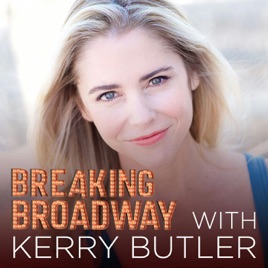
5
176
52
Breaking Broadway with Kerry Butler
Broadway Podcast Network
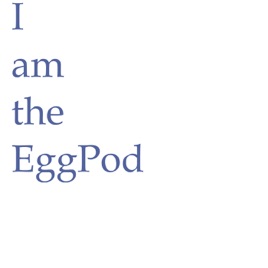
4.7
149
128
I am the EggPod
I am the EggPod
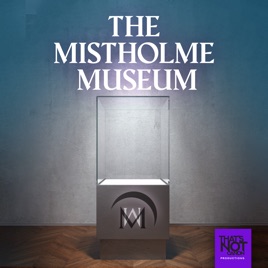
4.9
140
68
The Mistholme Museum of Mystery, Morbidity, and Mortality
Dominic Guilfoyle
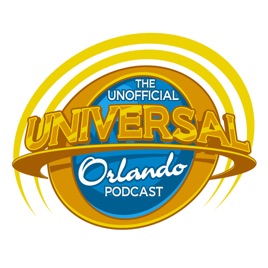
4.6
354
685
Unofficial Universal Orlando Podcast
Lee Mallaby
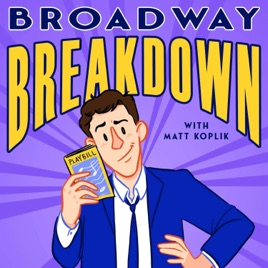
4.9
182
195
Broadway Breakdown
Matt Koplik
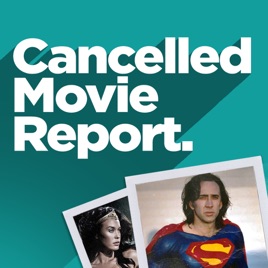
5
61
62
Cancelled Movie Report
cancelledmovies
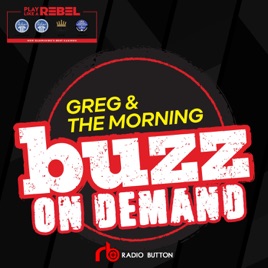
4.6
103
50
Greg & The Morning Buzz 24/7 Exclusive
Radio Button
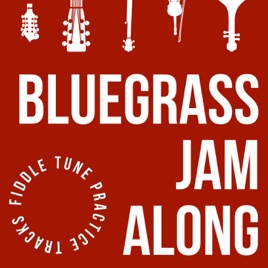
5
60
365
Bluegrass Jam Along
Matt Hutchinson
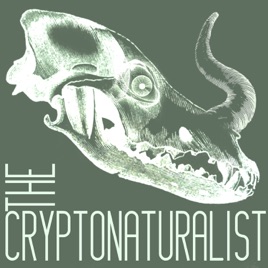
4.9
259
56
The Cryptonaturalist
Jarod K. Anderson
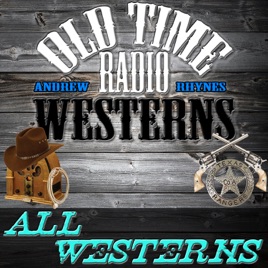
4.5
465
513
Old Time Radio Westerns
Andrew Rhynes



